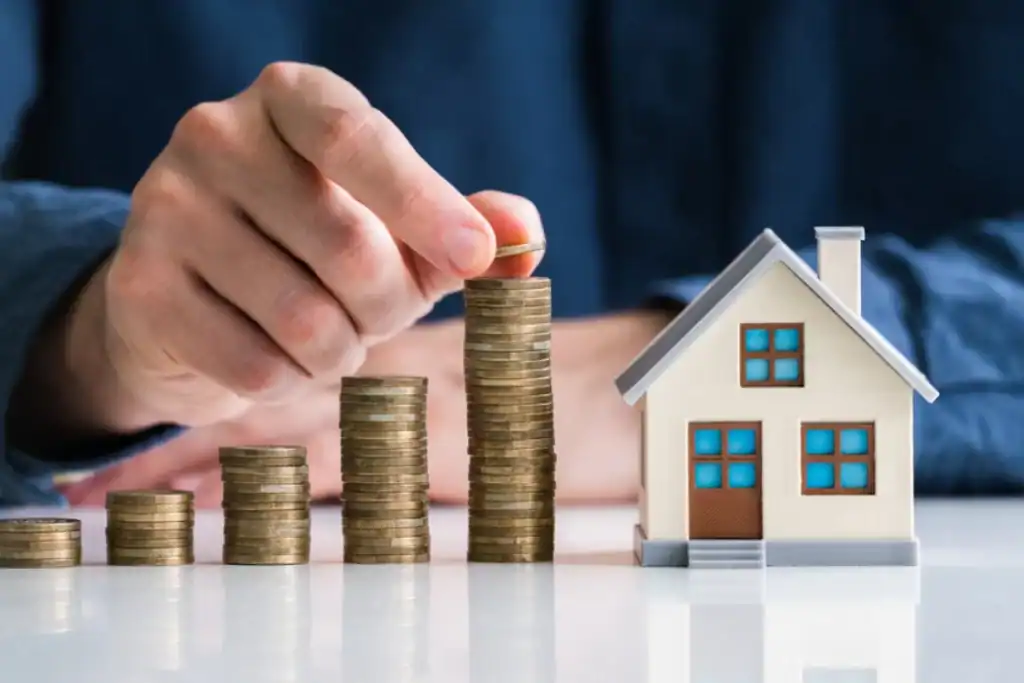Bonaire, a picturesque island in the southern Caribbean Sea, is part of the Netherlands Antilles and is famous for its extraordinary natural beauty, crystal-clear waters, and vibrant culture. Over the years, Bonaire has become an increasingly renowned destination for foreign investment, particularly in real estate. The island’s tropical climate, tax advantages, and welcoming atmosphere make it an attractive location for expatriates and investors alike. However, before diving into property purchases, foreign nationals must understand the rules and regulations governing property ownership in Bonaire. This article will explore whether foreigners can buy property in Bonaire, alternative investment routes, and the advantages and considerations of owning property on this beautiful island.

Can Foreigners Buy Property in Bonaire?
Yes, foreigners are allowed to buy property in Bonaire, but there are certain conditions and restrictions to be aware of. Bonaire, along with the other islands in the Dutch Caribbean, is a special municipality of the Netherlands. This unique status means that while the property laws on Bonaire are similar to those in the Netherlands, they still have some differences, especially regarding foreign ownership.
While foreign buyers do not face outright prohibitions, they must meet certain legal requirements to guarantee the property transaction is lawful. Additionally, the process can differ from purchasing property in many other countries, and foreign buyers should consult legal professionals with expertise in local laws. Here are some key factors to consider when buying property in Bonaire.
Key Factors to Consider When Buying Property in Bonaire
Legal Requirements for Foreigners
Foreign buyers are subject to the same general property laws as residents, but specific regulations apply to foreigners. When purchasing property in Bonaire, foreigners must be aware of the following:
- Residence Status: Foreign nationals without a residency status in Bonaire or the Netherlands Antilles may face challenges in obtaining financing for property purchases. While property ownership is open to non-residents, it’s advisable to have legal advice regarding the specifics of residency status and the implications it might have on financing or property management.
- Property Type: Foreigners can purchase residential, commercial, and industrial property in Bonaire. However, some restrictions apply to certain properties, particularly those near protected areas or within specific zoning districts. Buyers must conduct research on the specific property and its legal classification to avoid potential issues.
- Notary Public and Legal Process: As in many other countries, real estate transactions in Bonaire are formalized through a notary public. The notary plays a crucial role in ensuring the legalities of the transaction are adhered to and is responsible for registering the property deed. Foreign buyers must work closely with a local notary who can guide them through the purchasing process.
- Taxes and Fees: Foreigners must pay the same taxes and fees as local buyers when purchasing property in Bonaire. This includes registration taxes, which can be as high as 3% of the property value. Buyers should also be prepared for ongoing property taxes and annual maintenance costs.
- Financing: It can be more difficult for foreigners to obtain property financing on Bonaire than for residents. While banks on the island do offer mortgages, these are typically reserved for residents or those with a long-term residence permit. Foreign buyers may need to explore financing options outside of Bonaire or pay for the property in full upfront.
- Environmental Regulations: Bonaire is known for its rich biodiversity and commitment to environmental conservation. As such, properties located near the coast or within national parks may be subject to stricter building regulations, which can influence the type of property you can purchase.
Why Invest in Property in Bonaire?
While foreign buyers must navigate some legal hurdles when purchasing property in Bonaire, there are several compelling reasons why many choose to invest in this island paradise.
Prime Location for Tourists and Expatriates
Bonaire has become increasingly popular with tourists, divers, and expatriates due to its tropical climate, serene environment, and cultural appeal. The island is a haven for outdoor activities, including scuba diving, windsurfing, and hiking. The tourism industry has increased demand for vacation homes, rental properties, and commercial real estate. Foreigners seeking second homes or investment properties often find great value in Bonaire’s idyllic setting.
Attractive Tax Benefits
Bonaire offers significant tax advantages for property owners. The island is part of the Kingdom of the Netherlands, and its tax system favors local and foreign investors. There are no property taxes in Bonaire, although there is a small annual tax for maintenance fees. Foreign owners can also benefit from tax exemptions or reduced rates in some cases, depending on the specifics of their investment or personal situation. However, it’s important to work with a local tax expert to understand the nuances of the tax system and optimize tax benefits.
Stable Economy and Real Estate Market
Bonaire’s real estate market has shown signs of stability and growth over the past few years. The island’s real estate prices, while not as high as in other Caribbean or European markets, have experienced steady appreciation, particularly in the tourist and rental sectors. The demand for vacation homes, rental properties, and resorts continues to rise, supported by the island’s steady flow of international visitors and its growing appeal as a destination for digital nomads and retirees.
Low Crime Rate and Safe Environment
Bonaire is considered one of the safest islands in the Caribbean. Its low crime rate and peaceful, community-oriented atmosphere make it attractive to expatriates, retirees, and families looking for a secure environment to live or vacation. For investors, this safety factor is essential, as it can impact the appeal and long-term value of their property investments.
Infrastructure and Development
Bonaire has been improving its infrastructure, with significant roadways, utilities, and public services investments. The development of the island’s infrastructure is expected to continue, which may further boost property values in the future. Foreign investors who purchase property now may benefit from these developments as the island modernizes and grows.
Financing and Purchasing Property in Bonaire
As mentioned earlier, obtaining financing for property purchases in Bonaire can be challenging for foreign buyers. While local banks may offer mortgages, they are often restricted to residents or Dutch nationals with a strong financial history. Foreigners will likely need to provide a larger deposit (often upwards of 30% of the property’s value) or seek alternative financing through international lenders.
Bonaire offers a relatively straightforward purchase process for those with the capital to purchase property outright. The first step is to select a property, followed by a legal, due diligence process with the help of a local real estate agent and notary. After the necessary checks are made, the transaction is finalized through the notary, and the property is officially registered under the buyer’s name.
Key Considerations for Foreign Property Buyers in Bonaire
Due Diligence
Before purchasing property in Bonaire, thorough due diligence is crucial. This involves checking the title deed, ensuring no legal disputes, confirming that the property complies with local zoning laws, and understanding environmental restrictions if the property is near protected areas or the coast. Consulting with a local lawyer and real estate expert can help ensure a smooth transaction.
Ongoing Costs
In addition to the initial property price, foreign buyers must be prepared for ongoing costs, including utilities, property maintenance, and potential fees related to property management services. These costs can add up over time, especially for properties in remote or luxury locations, so budgeting appropriately is essential.
Residency and Visa Regulations
While owning property in Bonaire does not automatically grant residency status, it can be a step toward applying for a visa or residence permit. Foreign investors wishing to live in Bonaire for extended periods may need to apply for a visa or residency through the Dutch immigration system. However, long-term residency may not be necessary for those interested in owning a vacation home or rental property.
Frequently Asked Questions
Can foreigners buy land in Bonaire?
Yes, foreigners can buy property in Bonaire, but there are legal requirements to follow, and the purchase process involves working with a local notary public.
Do I need a visa to buy property in Bonaire?
No, you do not need a visa to buy property in Bonaire. However, owning property does not grant automatic residency, and foreign buyers may need to apply for a residency permit if they plan to stay on the island long-term.
Is financing available for foreign buyers in Bonaire?
Financing options for foreign buyers in Bonaire can be limited. Most local banks offer mortgages primarily to residents. Foreign buyers will likely need to provide a larger deposit or seek financing from international banks.
Are there property taxes in Bonaire?
Bonaire does not impose property taxes, although owners may be subject to small annual maintenance fees.
What are the key legal considerations when buying property in Bonaire?
Foreign buyers should ensure that the property’s title deed is clear of disputes, verify compliance with zoning laws, and confirm that no environmental restrictions exist for properties near protected areas or the coastline.
Conclusion
Bonaire offers a unique opportunity for foreign investors interested in purchasing property in the Caribbean. With its relaxed lifestyle, favorable tax environment, and growing real estate market, it’s no surprise that more and more international buyers are considering Bonaire as a destination for property investments. While foreigners can purchase property, they should know the local regulations, property laws, and financing challenges. With the right legal guidance and due diligence, purchasing property in Bonaire can be a rewarding investment that opens the door to the island’s stunning landscapes and thriving tourism industry.










